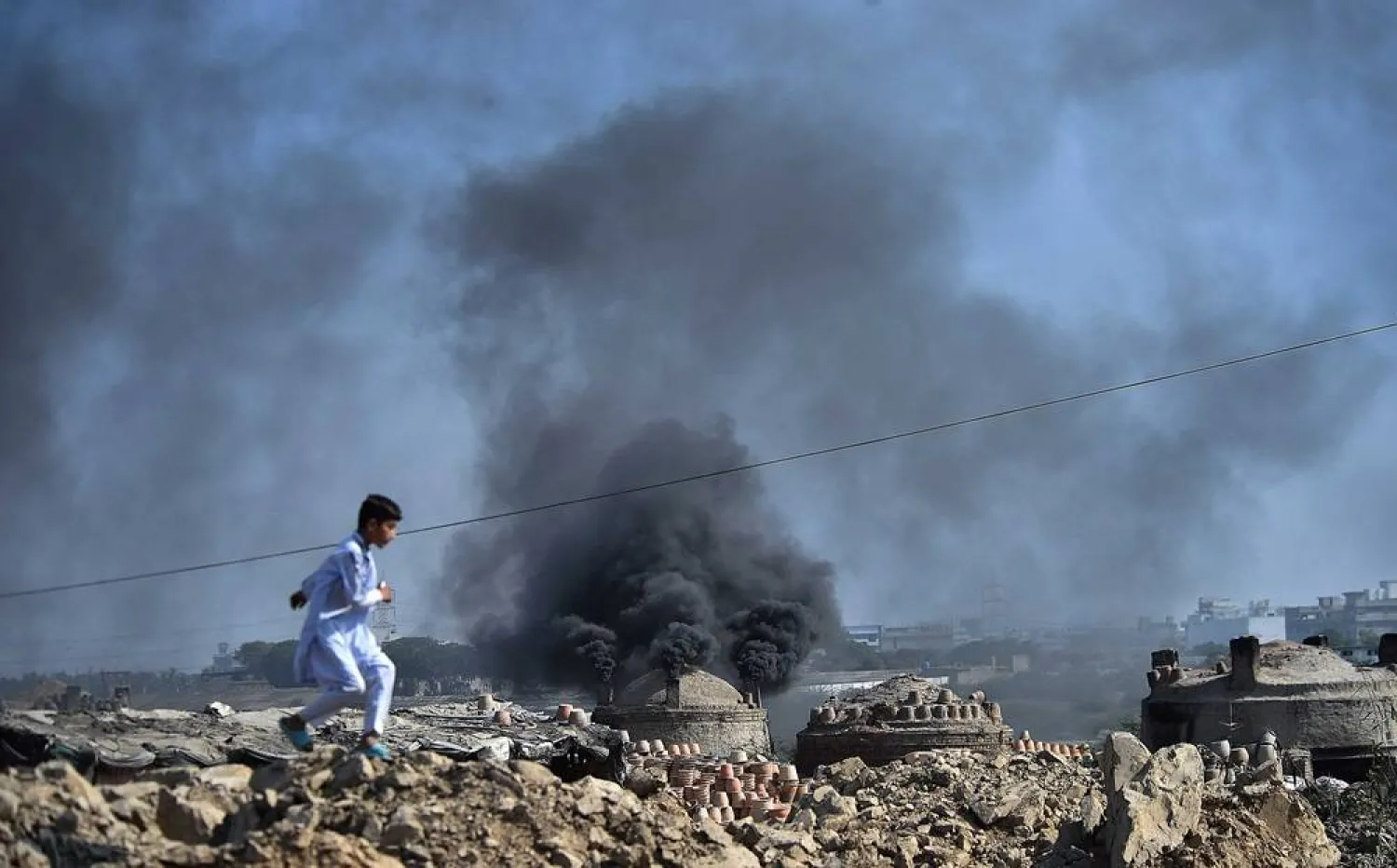Pakistan's Punjab province banned most outdoor activities and ordered shops, markets and malls in some areas to close early from Monday to curb illnesses caused by intense air pollution.
The province has closed educational institutions and public spaces like parks and zoos until Nov. 17 in places including Lahore, the world's most polluted city in terms of air quality, according to Swiss group IQAir's live ratings.
The districts of Lahore, Multan, Faisalabad and Gujranwala have seen an unprecedented rise in patients with respiratory diseases, eye and throat irritation, and pink eye disease, the Punjab government said in an order issued late on Sunday.
The new restrictions will also remain in force until Nov. 17.
"The spread of conjunctivitis/ pink eye disease due to bacterial or viral infection, smoke, dust or chemical exposure is posing a serious and imminent threat to public health," the Punjab government said.
While outdoor activities including sports events, exhibitions and festivals, and dining at restaurants have been prohibited, "unavoidable religious rites" are exempt from this direction, the order said.
Outlets like pharmacies, oil depots, dairy shops and fruit and vegetable shops have similarly been exempted from the directions to close by 8 p.m. local time.
Lahore's air quality remained hazardous on Monday, with an index score of more than 600, according to IQAir, but this was significantly lower than the 1,900 that it touched in places earlier this month.
A score of 0-50 is considered good.
UNICEF on Monday also called for greater efforts to reduce pollution and protect children's health in Punjab, saying that more than 11 million children under five years of age are in danger as they breathe the toxic air.
"In addition, schools in smog-affected areas have been closed...the learning of almost 16 million children in Punjab has been disrupted," said Abdullah Fadil, UNICEF Representative in the country.
"Pakistan, already in the grips of an education emergency...cannot afford more learning losses," he said.
Several parts of South Asia are engulfed by a toxic haze each winter as cold air traps dust, emissions and smoke from farm fires.
Punjab has blamed its toxic air this year on pollution wafting in from India, where northern parts have also been battling hazardous air, and has said it will take the issue up with the neighboring country through its foreign ministry.
India's Supreme Court on Monday directed the Delhi government to decide by Nov. 25 on imposing a perpetual ban on firecrackers, legal news portal Bar and Bench reported.
Firecrackers set off by revelers on Diwali, the Hindu festival of lights celebrated on Oct. 31 this year despite a ban, have aggravated the region's pollution problem.









